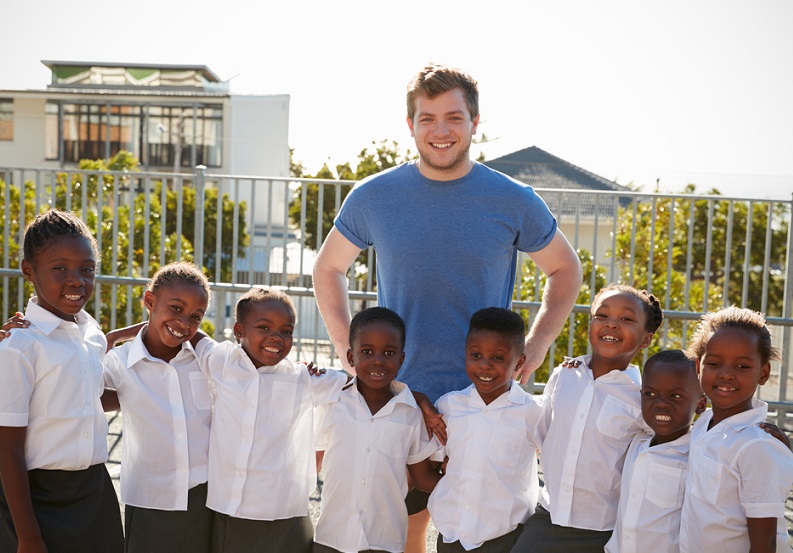In an increasingly interconnected world, the notion of taking a gap year has gained considerable traction among young individuals. The decision to volunteer during this time, particularly in collaboration with youth, serves to fulfill multifaceted developmental objectives while embodying the tenets of service and community upliftment central to the Bahá’í teachings. This article examines the salient reasons for dedicating a gap year to volunteering, with a focus on youth engagement from the Bahá’í perspective.
1. The Imperative of Service in Bahá’í Teachings
The Bahá’í Faith emphasizes service to humanity as a fundamental principle. Volunteering provides an exceptional avenue to embody this teaching, fostering skills and virtues essential for personal and communal growth. By choosing to engage with youth during a gap year, individuals exemplify service not only in their actions but also in their intentions, which align with the teachings of Abdu’l-Bahá in promoting the importance of education and empowerment for the younger generation.
2. Youth as Agents of Change
The Bahá’í writings recognize that youth hold immense potential as agents of change and transformation in society. Engaging with young people during volunteer work not only facilitates their development but also provides a platform to cultivate the qualities inherent in the youth that have the power to inspire their peers and communities. The act of mentoring and working alongside youth fosters a reciprocal exchange of ideas, enhancing both the volunteer’s and the youth’s understanding of service and community dynamics.
3. Fostering Unity and Diversity
One of the core principles of the Bahá’í Faith is the promotion of unity in diversity. A gap year dedicated to volunteering allows individuals to immerse themselves in diverse environments, bridging cultural and social divides. Working with youth from varied backgrounds encourages an appreciation for different perspectives, fostering a sense of oneness amidst diversity. This experience aligns with the Bahá’í approach to understanding that the richness of humanity lies in its multiplicity, thus underpinning the importance of cohesion and mutual respect.
4. Building Relevant Skills and Competencies
In the pursuit of personal and professional development, it is essential for volunteers to acquire a plethora of skills that enhance their competency in various settings. Volunteering with youth during a gap year equips individuals with valuable life skills, including leadership, communication, and empathy. Such attributes not only serve the needs of the youth being mentored but also prepare the volunteer for future endeavors. The convergence of service and self-improvement becomes an enriching aspect of one’s gap year experience.
5. Deepening Spiritual and Personal Reflection
Taking time away from conventional educational and career paths allows for introspection and self-discovery. A gap year devoted to volunteering provides the space for spiritual renewal and personal growth in alignment with Bahá’í principles. As volunteers engage with youth, they encounter diverse viewpoints that challenge existing beliefs, fostering a deeper understanding of themselves and their place in the world. This reflective practice is a vital part of the Bahá’í journey, amplifying one’s capacity for compassion, justice, and love.
6. Developing a Broader Worldview
Volunteering is inherently linked to developing a broader perspective on global issues. By working with youth across different strata of society, volunteers gain insights into various socio-economic challenges and cultural nuances. Such inundation empowers individuals to cultivate an informed worldview that transcends personal experiences. Understanding the complexities of humanity cultivates a sense of responsibility towards global citizenship, echoing the Bahá’í teaching that the fate of humanity is shared.
7. Networking and Community Building
Involvement in volunteer projects provides a unique opportunity to forge networks with like-minded individuals and organizations. The connections formed during a gap year can pave the way for future collaborative endeavors, fostering a spirit of community that is vital in the Bahá’í mission of world unity. Successful initiatives often arise from partnerships, and the relationships cultivated during this time can serve as foundational stones for future collective actions aimed at social betterment.
8. Emotional and Psychological Well-Being
Engaging in meaningful work has notable implications for an individual’s emotional and psychological health. Volunteering enriches one’s life with purpose, often leading to heightened levels of satisfaction and happiness. The act of contributing to the welfare of youth generates a sense of fulfillment that can have profound effects on mental well-being, providing both the volunteer and the youth with increased resilience and emotional intelligence, domains that are highly valued within the Bahá’í community.
In Conclusion
The decision to dedicate a gap year to volunteerism, particularly involving youth, resonates deeply with the foundational beliefs of the Bahá’í Faith. This experience not only nurtures personal growth and development but also contributes to the broader objective of enhancing societal well-being. Engaging with youth fosters a sense of responsibility, cultivates unity and diversity, and amplifies the potential for transformative change. In essence, a gap year spent in altruistic service offers unparalleled opportunities to resonate with the values of the Bahá’í teachings, ultimately benefiting individuals and communities alike.
